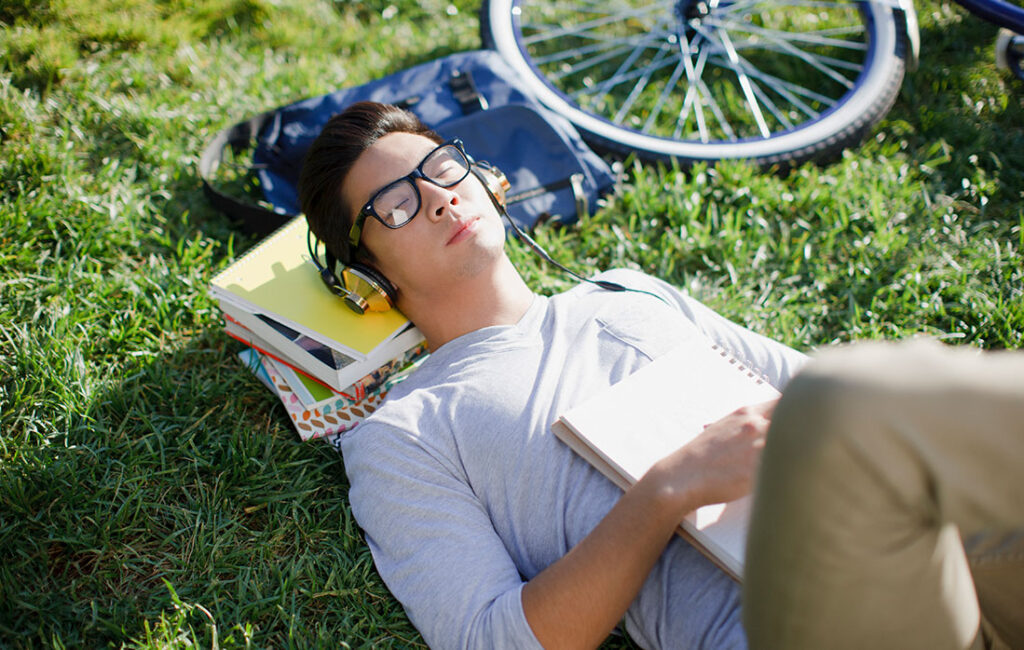
Parents to college freshmen often have one question: “How’s school going?” While they might be looking for study habits and diligent note-taking, it’s possible the answer lies in something much more basic — their grown child’s sleep habits.
While it might seem obvious that excellent sleep is necessary to perform well in school (flashback to your high school teacher telling you to go to bed early and eat a big breakfast before standardized testing day), new research published in the Proceedings of the National Academy of Sciences shows exactly how essential each hour of sleep is for success.
The study, composed of five smaller studies, followed first-year students from three independent universities, totaling more than 600 students. Each student wore a FitBit Flex or a FitBit HR and monitored their sleep for an entire semester or quarter.
The study authors determined that every hour of additional sleep early in the semester was directly associated with a .07 increase in end-of-term GPA. In addition, they pinpointed that the negative effects seemed to accumulate when students got six or fewer hours of sleep per night when compared to previous-term GPAs.
The lead researcher, David Creswell, a professor of psychology and neuroscience at Carnegie Mellon University told the Washington Post that sleep debt, which happens especially when students dip below that six-hour mark, has a “pretty negative role” on students’ academics.
This happens because sleep is linked to the memory’s role in storing information properly. Harvard says that a sleep-deprived person can’t focus enough to learn efficiently, and also that sleep is necessary for consolidating the new information they have learned, making it important to all aspects of the learning cycle.
The Centers for Disease Control and Prevention (CDC) recommends that folks 18 to 60 get seven or more hours of sleep per night, but some college freshmen might still be 17 or 18 years old, where another guideline of eight to 10 hours per night is at play, significantly more than the typical adult. Notably, six hours of sleep, that tipping point for profoundly harmful GPA impact, is between one and four too few hours of sleep for college freshmen, which might explain the detrimental effects.
Harvard adds that people dealing with chronic exhaustion or sleep deprivation can’t access previously learned information, so even if a student is trying hard in class and in studying, it might not be apparent on a test or other summative assessment, if they are in sleep debt.
Creswell and his fellow study authors controlled for gender, race, daytime napping, and first-generation status. Creswell also noted to the Washington Post that the time students went to bed didn’t seem to make an impact.
This means even students who are staying up late and sleeping in might still be able to learn and perform academically, as the researchers noted that the “midpoint” of the night of sleep didn’t matter for their findings. So, college students might benefit from paying attention to that urge to sleep in, especially if it means increasing the total sleep time logged.
It’s one thing to tell college students to sleep more, and another to consider the realities they are living in — the students in the study got an average of 6.5 hours per night. Majors even factor into sleep time, with anthropology majors getting the most, and architecture and computer science students getting the least, as Sleepopolis has previously reported.
Grades are far from the only concern with sleep deprivation, though — impulsive behavior, depression, and anxiety also increase with shorter sleep durations. So while a late night social event might seem like exactly what a college kid wants to, and should be doing, their mental health and GPA might hang in the balance (or lack thereof).



























